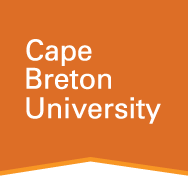Business Administration courses
Cape Breton University

- Canada
- World Rank : -
- Visit Website
Accounting
Play an important role in any organization
The Bachelor of Business Administration program (BBA) prepares students for self-employment and careers in private and public enterprise, cooperatives, government service, and for graduate study. The BBA program core courses put an emphasis on a broad range of business topics while the program as a whole provides a foundation in both business and the traditional liberal arts. Students graduate with the ability to analyze a business situation, identify alternative responses and resolve business difficulties.
A core focus of the BBA program is entrepreneurialism. Students graduate with the knowledge to manage and start their own business in a field they’re passionate about. Not everyone is interested in studying business but it can be an investment in your future. Graduating with a BBA gives you the right tools to build your dreams into a well-structured venture.
Why a BBA at CBU?
Join the ranks of an organization or build a business from the ground up, secure the foundation you need to do both and more with our BBA program.
Areas of Study
Add More in Business
Accounting is much more than being good with numbers; accounting knowledge is a sought after commodity. Business and government departments are constantly in need of quality, dedicated employees with a thorough understanding of financial management and accounting. From undergraduate to professional designation, studying accounting presents many unique opportunities versus other finance-based fields.
What Is The Study of Accounting?
Accounting is a dynamic, creative and interesting subject. It is the process of gathering, recording, interpreting and analyzing financial information. Through a Major in Accounting at CBU, students learn the facts and figures that keep a business running. Commonly referred to as the language of business, Accounting serves as the basis for financial decision-making.
By pursuing a Major in Accounting, Students at CBU will gain an understanding of the global economy and develop an international perspective through various management, finance, and economic course assignments. The topics explored within the program include cash control, capital assets and cost behaviour to corporate investment, fiduciary accounting and foreign operations. Students graduate with the skills to confidently assist with decision making with the ability to analyze, compare and interpret business statements.
Why Study Accounting At CBU?
An education you can count on.
Talk to an Enrolment Services Professional about how to pair your degree with a post graduate program.
Possible Career Paths
Entry requirement for international students
Students must require graduation from an academic secondary school program or equivalent with an average of “C” in five, senior academic-level/university preparatory courses with English, Mathematics and four additional courses.
TOEFL
Paper-Based Test: 550
Computer-Based Test: 213
Internet-Based Test: 80
IELTS
Overall Score: 6.5
No Band Below: 6.0
| Type of university | Public |
| Undergraduate Programs | 17 |
| Postgraduate Programs | 3 |
| Diploma and Certificate Programs | 7 |
| Tuition per academic year for Undergraduate International Students | $17,809 |
| Test scores accepted | IELTS, TOEFL |
For international candidates aspiring to study at the university, it is mandatory to have an estimate of the cost of living in Canada to survive comfortably in a foreign land. Below is the estimated tuition and student fees for the Fall/Winter 2019 – 2020 presented-
| Fees | Undergraduate (CAD) | Graduate (CAD) |
|---|---|---|
| Tuition | 8,040 | 2,012 (for six credit course) |
| International differential fees | 8,040 | 1,608 |
| International medical plan | 744 | 744 |
| Fees | 985 | 128 |
| Housing | 5,910 | 5,910 |
| Meal Plan | 4,744 | 4,744 |
| Total | 28,463 | 15,146 |
Note: The graduate fee depends on the number of courses offered by the students. Thus, graduate students should expect to pay more than 400% of the above-stated fees
| Tuition Fees in Canada (1st Year Average) | BE / BTech: CA$22,600 | MBA: CA$25,375 | MS: CA$17,225 | BBA: CA$20,560 | MEng: CA$22,225 | BSc: CA$20,745 | MASc: CA$20,375 | MIM: CA$28,900 | MA: CA$12,970 | MFin: CA$32,785 | BHM: CA$20,560 | MEM: CA$17,040 |
| Average Accomodation & Food Costs in Canada | CA$8890 Per Year |
| Entrance Exams in Canada | TOEFL: 86 | IELTS: 6.5 | PTE: 60 | GRE: 309 | GMAT: 560 | SAT: 1177 |
| Work and Study in Canada | Permitted for 20 hours/week with a valid study permit. |
| Post Study Work Permit in Canada | Up to 3 Years after graduation depending on the course. |
| Cost of Student Visa in Canada | CAD 150 |
| Student Visa in Canada | A Canada student permit is a document issued by IRCC (Immigration, Refugees and Citizenship Canada) for international students in Canada. To study in Canada, you will require a student permit, which serves as a student visa. |
| Intakes in Canada | There are Three Intakes in Canada: Fall (September), Winter (January) and Spring (May) |
| Top Job Sectors in Canada | Business Management, Engineering, Economics, Dentisty, Law, Computer Science. |
| Economy in Canada | GDP Growth of 1.9% (2018) 1.5% (2019e), 10th Largest Economy in the World by Nominal |
Tuition & fees :
$ 8,476
Hostel & Meals :
$ 5,025
Total
$ 13,501